Le Chevalier D'Eon: Book 4
Introduction
Of course by the time this review is posted, this will be out of date, but last week I was tickled to find that Le Chevalier D'Eon has proved to be an inspiration closer to home as well. Eonnagata is a piece of experimental theatre that takes the real life story of d'Eon de Beaumont, and brings it to life through dance. It also turns out that the real life d'Eon was even more colourful than his animated counterpart. What tickles me most is that among all the other influence that have informed this production, the creators looked to Japanese Kabuki theatre for insight. Anyway, back to the review.
For d'Eon de Beaumont, it should have been the culmination of his ascension to the highest levels of nobility, but the day he was elevated to the Royal Court at Versailles, was the day that his sister Lia's body was fished out of the river, in a coffin with the word Psalms daubed on the lid in blood. Since then, he's spent more time away from the court than not, searching for his sister's murderers, haunting the Paris back alleys, and prowling the city streets at night. But his investigation leads to a dark conspiracy indeed, one that reaches to the highest levels of European royalty, involving the invocation of dark and mysterious powers by arcane spell-casting Poets. Fortunately, d'Eon is not alone, he has allies, and chief among them is Lia's soul. She's come back from the dead to avenge her murder, although to do so she has to possess her younger brother's body.
The next four episodes are presented on this disc from ADV.
13. The Sign
The four knights arrive in London in pursuit of Robespierre. They need a guide to English society, someone who is discrete, knowledgeable and loyal. The Comte de Guercy is knowledgeable, but his other attributes are lacking. He was however a member of Le Secret du Roi and is currently the French Ambassador to England, which ought to ensure some measure of trust. When he measures his trust and comes up with a bill, that doesn't bode well, especially when back in France, Madame de Pompadour is looking for an agent to act against the four Knights, and she is aware of Guercy's fondness of money. D'Eon needs a way in to the British Royal family, to see what their position in the conspiracy is. It's especially worrying when he learns that one of King George's trusted advisers is none other than Robespierre, and George III has developed a fondness for Poetry of late. The other trusted adviser is a man named Robert Wood, and he has a fondness for wine, women and duelling. Guercy hastily arranges a ball at the French Embassy, and invites Wood and the Queen. It turns out to their advantage that Lia also knew Queen Charlotte, but d'Eon is having a hard time knowing where Lia's memories end, and his begin.
14. Robert Wood's Document Case
The Poets Robespierre, Cagliostro and Lorenza are also in London, here to visit one of the most powerful men in their movement, Francis Dashwood. Robespierre learns that he needs Lia's soul to fully read the Royal Psalms, and he turns his attention to d'Eon. D'Eon and the others have their attention on Robert Wood. They need to distract him long enough to steal his document case, to learn what England's plan for France is. But they haven't fully grasped just how powerful words really are, especially with the Poets behind them. D'Eon, dressed as Lia, and Teillagory, displaying his superior fencing skills, entertain the Queen and distract Wood, but when Robin and Durand start copying his documents, they aren't prepared for what is unleashed.
15. The Final Secret Order
When the Earl of Sandwich examines the documents, he realises that they have been read, and suspicion immediately falls on the Frenchmen. After sufficient monetary lubrication, Guercy is quick to place the blame, and soon there is a warrant for their arrest. However, Teillagory has anticipated this, and has obtained new quarters for them in a quiet part of the city. Meanwhile Durand gets a letter from King Louis, although at first glance it's just a blank piece of paper. When the secret message is revealed, Durand is taken aback, his loyalties torn. But he doesn't have time to carry out his orders, as the hunt closes in, and it closes in on Durand first.
16. The Whereabouts of the Soul
Concerned about Durand, hunted by the authorities, and betrayed by Guercy, d'Eon and the others have few options left. It's all the worse as Durand has fallen into the hands of the Poets, and is currently being interrogated by Robespierre. The tensions between France and England are rising over the affair, and time is running out. D'Eon realises that they have just one place left to turn, to Queen Mary herself. D'Eon does have an advantage though, not only was Queen Charlotte close to Lia, but she holds a remarkable secret. It's enough to buy two days and some valuable information. They now know where the Revolutionary Brethren are headquartered, Durand will be freed, and they must use those two days to prove their innocence.
Picture
The 1.78:1 anamorphic transfer is clear and sharp, although there is the usual smidgen of NTSC-PAL conversion issues to put up with. It's nowhere near as bad as it could be though, and by and large this is in the top range of anime transfers. It needs to be good, as it's a Production IG animation, with all the attention to detail and reputation for excellence that implies. The character designs are realistic rather than stylised, the costume designs are astounding, and Europe of the eighteenth century is brought to vivid life. The final result is a very high budget look. The animation is top-notch as well; it's worth seeing some of the fencing sequences as an example of the research and veracity
Sound
You have a choice of DD 5.1 English and Japanese soundtracks, along with an optional translated English subtitle track, or simple signs to accompany the English track (The signs more often than not translate French text onscreen, not Japanese in this case). The surround is very impressive, certainly working well in the action sequences, and also conveying the orchestral music with a suitable level of grandeur. My choice as always was for the Japanese track, but from what I sampled of the English dub it is exceptional, well cast and well performed. The 5.1 Surround is also a tad more expressive in the English dub, so that may swing it if you waver over which language to listen in.
Extras
And this is where ADV's money ran out. The first three volumes of Le Chevalier d'Eon were packed to overflowing with featurettes, interviews and commentaries, and the earlier commentaries promised even more to come. But, volume 4 came to shop shelves around the end of 2007, which is when ADV started running into difficulties. From this point on, we kiss goodbye to most of the extras. However, given what happened to the rest of ADV's catalogue, we ought to be grateful that Le Chevalier D'Eon was at least released in its entirety.
Still, there are extras to appreciate with this disc.
There are sleeve notes offering more on Robin, Durand, and Teillagory, with respect to the meaning of their appearances in the closing credit sequences.
The booklet slipped inside the Amaray Case, entitled Chapter 4 runs to 16 pages, and offers character designs and info for Cagliostro and Lorenza. There is an interview with Ken Narita, the Japanese voice of Durand (slight spoilers here), and part four of a prequel side story presented in the form of a script.
Inside the case, you should find a postcard with a rather impressive image of Lia and d'Eon.
On the disc, you'll find the preview for volume 5, the textless credits, and trailers for Innocent Venus, Kurau Phantom Memory, Pani Poni Dash, Utawarerumono, and Chrono Crusade.
There are also historical notes to peruse, offering articles on the real life George III, Queen Charlotte, John Montagu, and Francis Dashwood.
Conclusion
The action moves to England for this fourth volume of Le Chevalier D'Eon, and it offers plenty of opportunities for a UK viewer to nitpick. My knowledge of French and Russian history was scant enough to allow me to accept those earlier episodes at face value, but with the first few minutes of this volume, I'm wondering if standards of research have begun to slip, or if I was too forgiving with the earlier volumes. When the ship carrying our heroes arrives at the port of London, the horn of a steamship can be distinctly heard prior to the Industrial Revolution, while Big Ben has its clock face a hundred years too early, and the Houses of Parliament are identical to the building that stands there today. However, the Royal residence is shown as St James's Palace, which at least is authentic, and at least the traditional entertainment shorthand for London, of Bobbies on the beat and double-decker buses isn't used.
All this nonsense is swiftly forgotten as the story gets into full flow, as this is the best instalment of Le Chevalier D'Eon yet, adding to the intrigue, the narrative becoming more layered and compelling, the characters developing in unexpected directions, and giving us some surprising twists and long anticipated revelations. If the first three volumes were all set-up, then this fourth volume is where Le Chevalier D'Eon begins to deliver. We begin this volume with the central character in conflict, always a good thing to see in dramas of Le Chevalier D'Eon's calibre. D'Eon is concerned with all the deaths that have occurred in the name of the king, deaths that he has been responsible for. It doesn't help that his memories are merging with Lia's as his sister's soul begins to overwhelm him. He's beginning to get flashes of insight, glimpses of the past, and he can now even sense Robespierre, and is beginning to realise what he meant to his sister. He's questioning himself more and more, something that his companions are quite naturally concerned about.
That character conflict spreads when Durand receives the king's final order, an order that will turn him against his comrades. When we first met him, he was an ambiguous and frankly untrustworthy figure, whose motives were clouded. As we got to know him, it became apparent that you couldn't ask for a more stalwart and loyal an ally, which is why his torment is so extreme when he receives the order, and why he is blinded to more immediate perils.
The mystery itself simply deepens in this volume, with the politics of England apparently making no sense. The earlier volumes set up a dynamic of Progressive and Conservative Factions in both the French and Russian aristocracies and monarchies. The progressives wanted the power of the Royal Psalms to effect change in their societies, while the conservatives wanted them to preserve the status quo. Characters like Norotsov, Robespierre, and Cagliostro were introduced as agents of the progressives, and it became obvious that they were acting against the faction that d'Eon is loyal to. But when it comes to Britain, it's all the other way around. King George is himself closely linked to Robespierre, and it seems that the Progressive faction may be working with the British monarchy, rather than against. We also learn that Robespierre's relationship with Lia certainly wasn't antagonistic, and that his attitude towards Durand at least, and d'Eon by implication may not be as malicious as it first seemed. It also transpires that he is working at some level against the head of the Progressives, Francis Dashwood. The goals and ambitions of Robespierre are more opaque than ever.
In some ways I feel I'm back at square one with Chevalier, as with all the twists and turns, betrayals and backstabs, I have no idea of who the protagonists are, and who the villains are. At the end of this volume, war seems imminent between England and France, and while King George looks allied to the Progressives, his Queen is more sympathetic to d'Eon's group. But this is different from the first volume in that we have so many more pieces of the puzzle at hand. It's just that they look to be in the wrong places at this point. What really makes this volume work though, is that for the first time in the series, I begin caring about the characters. The trials and tribulations that they suffer have meaning now that I know them better, and they emotional impact of the dramatic events in this volume certainly elevate this above the dry, mental puzzle that it seemed in the first half of the run. Hopefully Le Chevalier D'Eon can carry that momentum through the final two volumes.
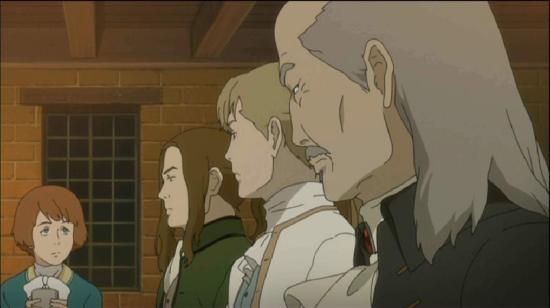
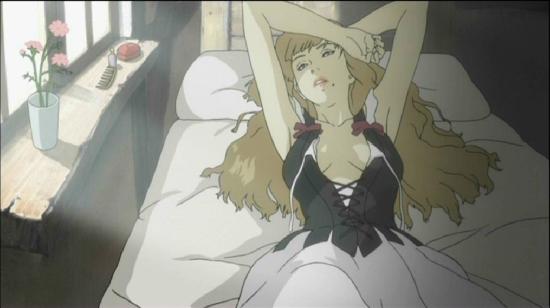
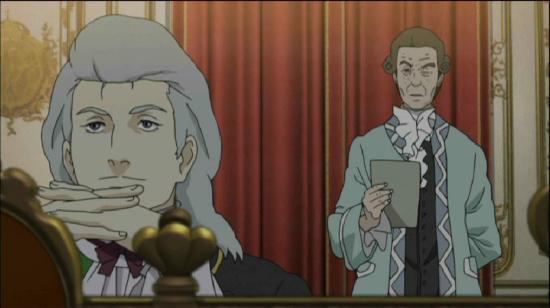
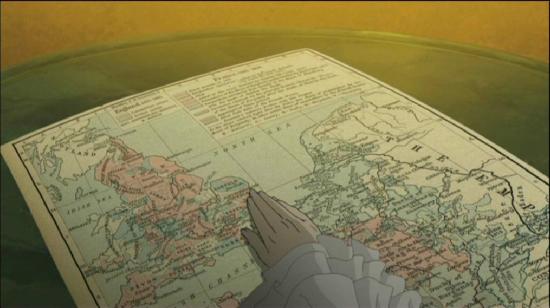
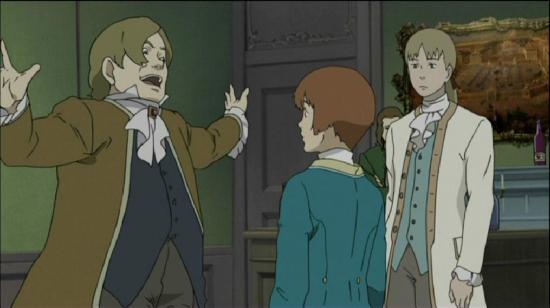
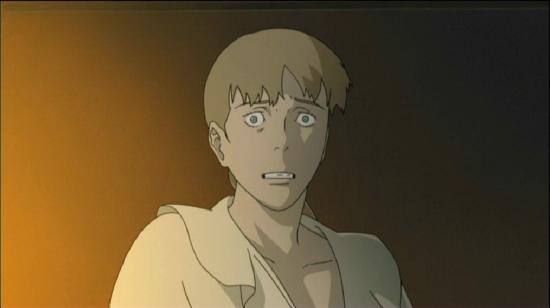
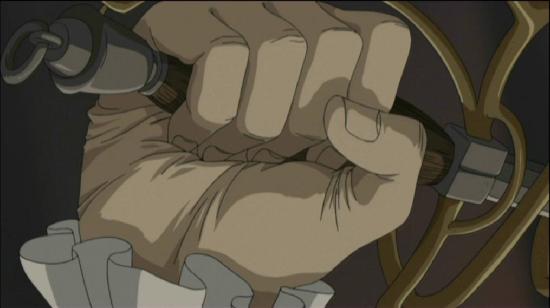
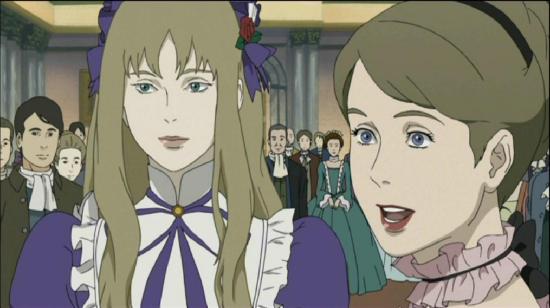
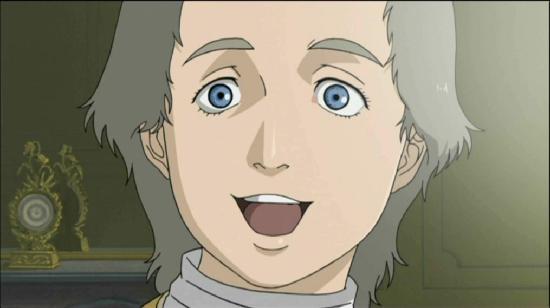
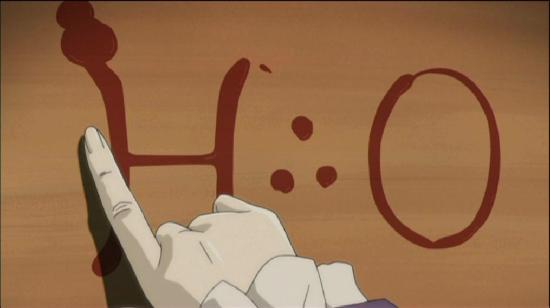
Your Opinions and Comments
Be the first to post a comment!